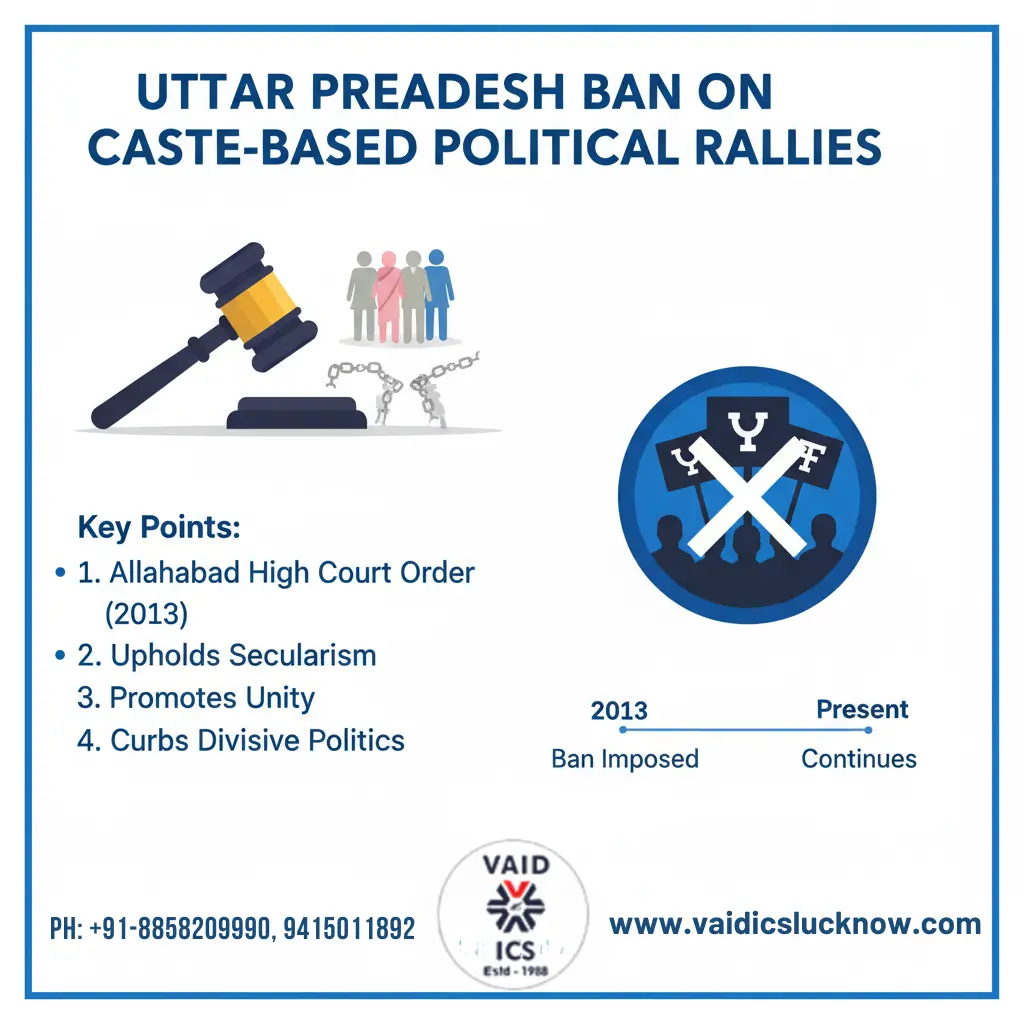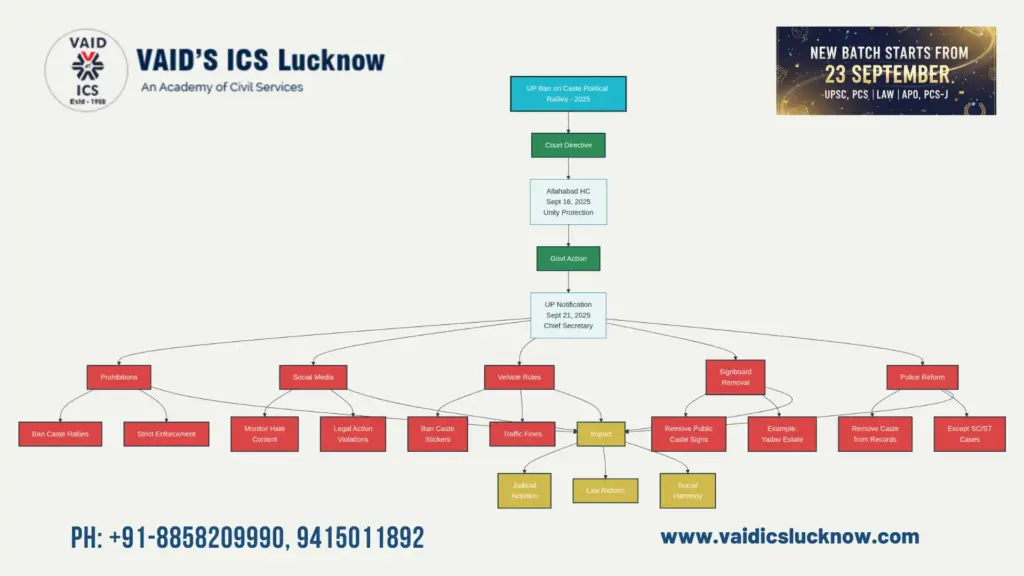September 23, 2025
Caste-Based Rally Ban: 5 Alarming Impacts Unleashed in UP Policy
Ban on Caste-Based Political Rallies: Uttar Pradesh
On 16th September 2025, Justice Vinod Diwaker of the Allahabad High Court issued a directive to the Uttar Pradesh government to curb caste glorification in public and political spheres. The Court emphasized that caste-based rallies, events, and public displays were creating deep social divisions and threatening public order and national unity.
UP Government Notification
On 21st September 2025, the Uttar Pradesh government, through officiating Chief Secretary Deepak Kumar, issued a comprehensive notification to implement the High Court’s order. The notification was aimed at maintaining social harmony, strengthening law and order, and discouraging caste-based mobilization in the state.
The notification introduced strict measures, including:
- Ban on Caste-Based Political Rallies:
All political rallies, conferences, and gatherings organized in the name of caste were prohibited. Such activities were identified as major contributors to caste conflict, social fragmentation, and public disorder. District Magistrates and Police Chiefs were instructed to strictly enforce this ban across the state. - Tight Monitoring of Social Media:
The government ordered continuous surveillance of social media platforms to detect and act against content that:
- Glorifies any caste,
- Condemns or insults other castes,
- Incites caste hatred or provokes violence.
Strict legal action will be taken against violators under relevant cybercrime and criminal laws.
- Regulation of Vehicles:
Displaying caste names, stickers, or slogans on vehicles has been completely banned.
Vehicles found violating the rule will be challaned under the Central Motor Vehicles Act, 1988.
Transport and traffic enforcement teams have been instructed to regularly check vehicles and take immediate action. - Removal of Caste-Based Signboards:
The notification instructed local authorities to remove all caste-based signboards or public displays that glorify a particular caste or declare certain areas as belonging to specific communities.
Examples include boards like “Yadav Estate”, “Thakur ka Ilaaka”, or any similar caste-centric identifiers. - Reforms in Police Records:
The caste of accused persons will no longer be recorded in police case files at police stations.
The Crime and Criminal Tracking Network & Systems (CCTNS) portal will be updated by NCRB to remove the caste field permanently.
Until the technical update is complete, the caste field is to be left blank in all case entries.
Exception:
- Cases registered under the Scheduled Castes and Scheduled Tribes (Prevention of Atrocities) Act, 1989 will continue to record caste details, as these are legally necessary for ensuring protection and justice for SC/ST communities.
Criticism and Issues :
Allegations of Double Standards :
- Critics highlight the government’s past organization of caste-based rallies and conferences, especially before elections.
- Public displays showcasing caste-wise leadership composition contradict the ban, raising questions about consistency and neutrality.
Politically Motivated Timing :
- The ban was announced soon after a major caste-based rally by rival groups was planned.
- This has fueled accusations that the move targets specific groups to curb their mobilization rather than addressing caste issues broadly.
Suppression of Legitimate Advocacy :
- The notification is feared to silence voices advocating for caste-related rights and representation.
- Critics argue it controls public expression on caste issues without tackling underlying inequalities.
Concerns of Selective Enforcement :
- There are apprehensions that the ban may be enforced unevenly, targeting certain groups while sparing others based on political affiliations.
- This raises doubts about the law’s impartial application.
- Lack of Structural Reforms :
- The ban focuses on restricting rallies but ignores deeper issues like caste discrimination and socio-economic disparities.
- Critics argue that without comprehensive reforms, the measure remains symbolic and ineffective.
Significance of the Move:
The notification is considered a major step towards curbing caste polarization in Uttar Pradesh.
- Strengthening Public Order:
Helps prevent caste-based violence and unrest, particularly during election campaigns when tensions are high. - Promoting Social Unity:
Aims to foster harmony among communities by discouraging divisive caste politics. - Neutral Governance:
Removing caste data from police records will encourage a more objective and unbiased system of justice.
September 24, 2025
September 23, 2025
September 22, 2025
September 17, 2025


